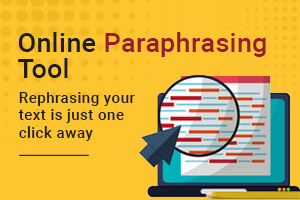
Professional Guide For Writing Personal Letters
You might be wondering why is there a need for personal letter writing even in today’s fast-paced world of digital communication. Well! Personal letters hold an essence of their own as they express your emotions which digital letters can never do. The difference is like between a robot and a human being as both convey a message but a robot does not have emotions. This is why educational institutes still incorporate writing personal letters in the curriculum.
However; if you are not getting the format of writing personal letters or don’t have the time to do your task then there always is an option of either taking guidelines from online posts or buying Do My Uni Work For Me services. The following post is also intended to do the same as it is a complete guideline about personal letters, their importance, how to write a personal letter for university, and so on.
What are personal letters?
A personal letter is a handwritten or typed communication sent from one individual to another. The purpose of writing personal letters is to convey;- Thoughts.
- Emotions.
- Experiences.
- Updates in a personalized and informal manner.
Even though; personal letters are not bound by strict rules of etiquette, there still is a way of writing them that is taught in educational institutes. Students who buy Online Assignment Help In The Uk often take assistance with personal letter writing as well to get affiliated with the format.
Importance of Personal Letters:
Students pay for assignment to be done because for them the sole importance of these assignments is the grades, but there is much more to it. The importance of personal letters lies in their ability to foster and maintain human connections on a deeper level, including:
Emotional Connection: Personal letters allow people to express their emotions and experiences in a more heartfelt way. This helps in building strong emotional connections between individuals, even when they are physically distant.
Preservation of Memories: Personal letters can serve as tangible records of events and emotions.
Individual Attention: When someone takes the time to write a personal letter, it shows that they care and are willing to invest effort into maintaining the relationship. The recipient feels valued and important.
Uninterrupted Communication: Personal letters allow for more thoughtful and uninterrupted communication. People can express themselves in greater detail without the distractions of real-time notifications.
Intimacy and Vulnerability: Personal letters encourage individuals to open up and share their thoughts more deeply. This fosters intimacy and vulnerability in relationships which leads to greater understanding.
Reflection and Self-Expression: Writing personal letters requires introspection and self-expression. It lets individuals to reflect on their experiences and write their emotions in a way that might not be possible in day-to-day conversations.
Cultural and Historical Significance: Throughout history, personal letters have played a crucial role in documenting cultural norms and historical events. They provide insights into the past that might not be found in official records.
Types of Personal Letters:
Personal letters come in various types, and each of these types of personal letters serves a different purpose and tone. For instance:
Friendly Letter: These are informal letters written to friends or family members. They usually share;
- Personal updates.
- Anecdotes.
- Casual conversations.
Thank You Letter: These letters express gratitude for gifts or acts of kindness. They are often sent after events like;
- Birthdays.
- Weddings.
- When someone has helped you in some way.
Apology Letter: An apology letter is used to express regret and apologize for a misunderstanding or any wrongdoing. It is a way to mend relationships and seek forgiveness.
Condolence Letter: These letters are sent to offer sympathy and support to someone who has lost a loved one. They express condolences and provide comfort during times of grief.
Congratulatory Letter: These letters are written to congratulate someone on their achievements, such as;
- Graduation
- Getting a new job.
- Having a baby.
- Any other significant milestone.
Invitation Letter: Invitation letters are used to invite someone to an event or a celebration. They include details about the;
- Event.
- Date.
- Time.
- Location.
Love Letter: Love letters express romantic feelings and emotions towards someone. They can be heartfelt while expressing;
- Love.
- Admiration.
- Deep affection.
Farewell Letter: Farewell letters are written when someone is leaving a place or a group. They express;
- Well-wishes.
- Fond memories.
- Gratitude for the time spent together.
Get Well Soon Letter: These letters are sent to wish someone a quick recovery when they are ill or going through a difficult time.
Request Letter: A request letter is used to ask for a favor or assistance from someone you know personally. It could be anything from asking for a recommendation to borrowing an item.
Format of a Personal Letter for different types:
The tone and style of personal letters can vary widely based on;
- Your relationship with the recipient.
- The purpose of the letter.
- Your personal writing style.
So; the Format of a Personal Letter changes depending on all these factors. Some of the commonly used formats for personal letter writing are:
Friendly Letter:
Format:
- [Your Address]
- [City, State, ZIP Code]
- [Date]
- [Recipient's Name]
- [Recipient's Address]
- [City, State, ZIP Code]
- Dear [Recipient's Name],
- [Opening Paragraph: Greeting and catching up]
- [Body Paragraph: Share news, stories, and updates]
- [Closing Paragraph: Concluding thoughts, well wishes, and plans]
- Sincerely,
- [Your Name]
Thank You Letter:
Format:
- [Your Address]
- [City, State, ZIP Code]
- [Date]
- [Recipient's Name]
- [Recipient's Address]
- [City, State, ZIP Code]
- Dear [Recipient's Name],
- [Opening Paragraph: Express gratitude and acknowledge the gift/gesture]
- [Body Paragraph: Explain how the gift/gesture is meaningful]
- [Closing Paragraph: Thank again and express appreciation]
- Sincerely,
- [Your Name]
Condolence Letter:
Format:
- [Your Address]
- [City, State, ZIP Code]
- [Date]
- [Recipient's Name]
- [Recipient's Address]
- [City, State, ZIP Code]
- Dear [Recipient's Name],
- [Opening Paragraph: Express sympathy and acknowledge the loss]
- [Body Paragraph: Share memories, offer support, and offer condolences]
- [Closing Paragraph: Extend support, offer help, and express empathy]
- With deepest sympathy,
- [Your Name]
Formal Invitation Letter:
Format:
- [Your Name]
- [Your Title or Position, if applicable]
- [Your Organization, if applicable]
- [Your Address]
- [City, State, ZIP Code]
- [Date]
- Dear [Recipient's Name],
- [Opening Paragraph: Introduce the event and extend the invitation]
- [Event Details: Date, time, venue, purpose]
- [RSVP Information: How to respond and contact details]
- We look forward to your presence.
- Sincerely,
- [Your Name]
Tips for Writing Personal Letters
Now that you know how to structure a personal letter, it is time to look into some of the tips for writing:
Start with a heartfelt greeting:
Begin your letter with a friendly/personal salutation. Address the recipient by name and consider using terms of endearment if appropriate.
Set the Tone:
Set the tone of your letter based on your relationship with the recipient and the purpose of the letter. It can be,
- Informal.
- Friendly.
- Heartfelt.
- Humorous.
Be Genuine:
Personal letters are a chance to express your true feelings. Be sincere in your words and let your emotions shine through. Avoid overly formal language if it does not match the nature of your relationship.
Organize Your Thoughts:
Prior to writing, jot down the main ideas you want to convey. This will help you organize your thoughts and ensure that you cover everything you intend to.
Use Descriptive Language:
Paint a vivid picture with your words. Describe emotions or situations in detail to make your letter more engaging.
Acknowledge Shared Experiences:
If you and the recipient have shared experiences or inside jokes, referencing them can strengthen your bond and make the letter more personal.
Avoid Clichés:
Try to use original and authentic language. Avoid relying on clichés or overly used phrases, as they can make your letter seem less personal.
Use a Personal Voice:
Write as if you are speaking directly to the recipient. This can make your letter more intimate and create a sense of connection.
Keep it Concise:
While you want to express your thoughts, aim to keep your letter at a reasonable length. Long letters might be overwhelming for the recipient to read.
Closing:
Choose an appropriate closing that matches the tone of your letter. Common closings include;
- Sincerely.
- With love.
- Warm regards.
- Something more personalized.
Proofread:
Before sending, proofread your letter for grammar and punctuation errors. A well-written letter shows that you have taken the time and care to communicate effectively.
Conclusion:
Personal letters are timeless no matter the technological innovations. This is why academic institutes still incorporate them into students’ curricula. Hopefully; the above-mentioned post will help the readers in writing heartfelt personal letters.



